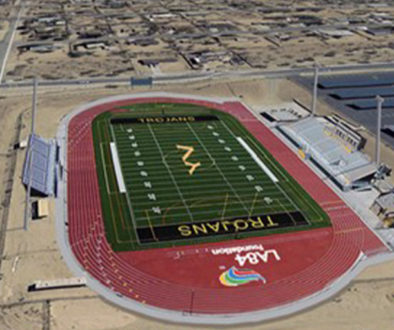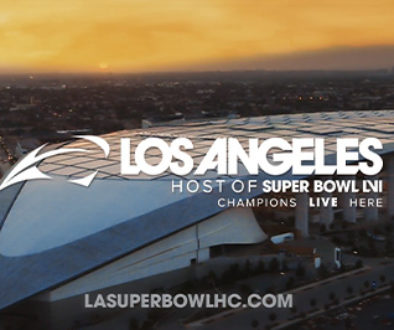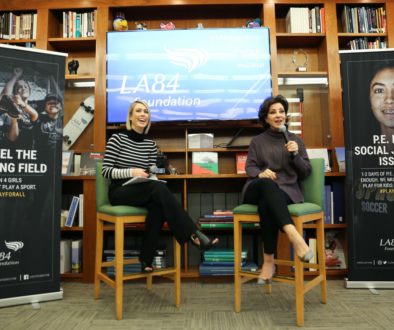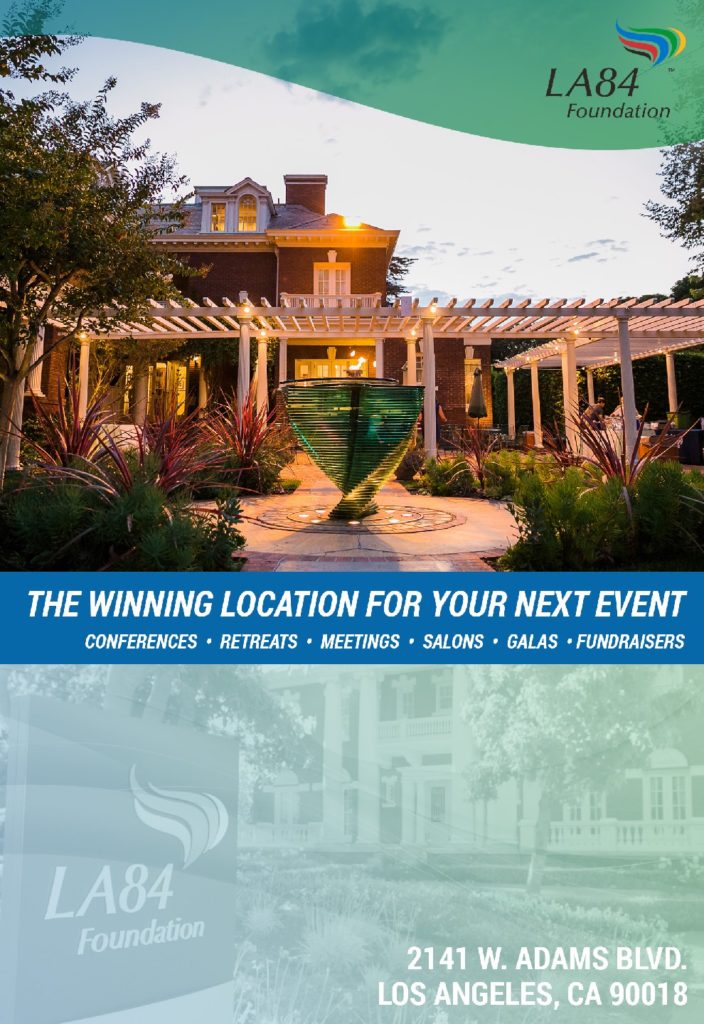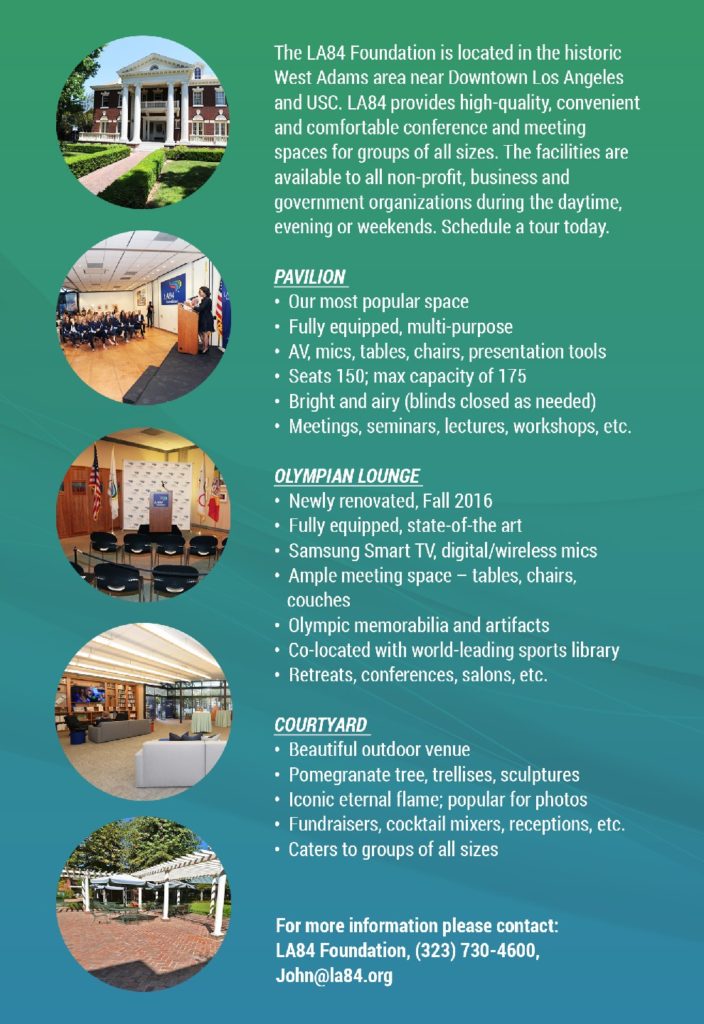Sports As A Power For Good
As I write this note, I’m en route from Los Angeles to the Vatican. I have the honor this week of representing the LA84 Foundation to participate in the Vatican’s First Global Conference on Faith and Sport.
“It is timely and necessary for Faith and Sport to remind and re-awaken people,” the primer for the Vatican conference says, “to the massive power for good that these two pillars of human life can provide.”
I was educated in the Jesuit tradition at Loyola Marymount University in Los Angeles, and I’ve been following the papacy of Pope Francis — a member of the Jesuit order — with particular interest. The Jesuits’ selfless belief is a focus on those unserved and underserved and to be, “men and women for others.
It is no surprise, then, that the Vatican conference aims in part to provide a global perspective of sport in the service of humanity. Those of us at the conference are certain to share examples with one another of how sport can manifest transformative change at the individual and community levels; how we all have an obligation to do our part to elevate playing fields and address inequity; and how sometimes, the actions of just one or two individuals can be enough to catalyze lasting change; individuals such as Olympians Tommie Smith and John Carlos.
When I was in college at LMU, if you had told me that one day I’d be in a select international group of people invited to the Vatican, I’m not certain if I would have believed you. But then again, something happened in the U.S. last week that makes anything seem possible: Olympians Smith and Carlos were invited guests at the White House. For any of you who don’t know of that duo — you should. I keep a photograph of Smith and Carlos in my office at the LA84 Foundation, where I serve as President and CEO.
Back in 1968, during a zenith of American turmoil, when civil rights movements, anti-war movements and a psychedelic frenzy of cultural changes fused like many raging storms into one, Smith and Carlos won Olympic gold and bronze medals, respectively, in the 200-meters sprint at the Mexico City Games. During the playing of the National Anthem honoring their success, the sprinters wearing black socks and an Olympic Project for Human Rights badge famously each raised a fist to the sky, the Black Power Salute to show solidarity with people fighting internationally for human rights. For that action, Smith and Carlos were kicked out of the Games and given 48-hours to depart Mexico. Their action was labeled “immature behavior” by then-members of the United States Olympic Committee.
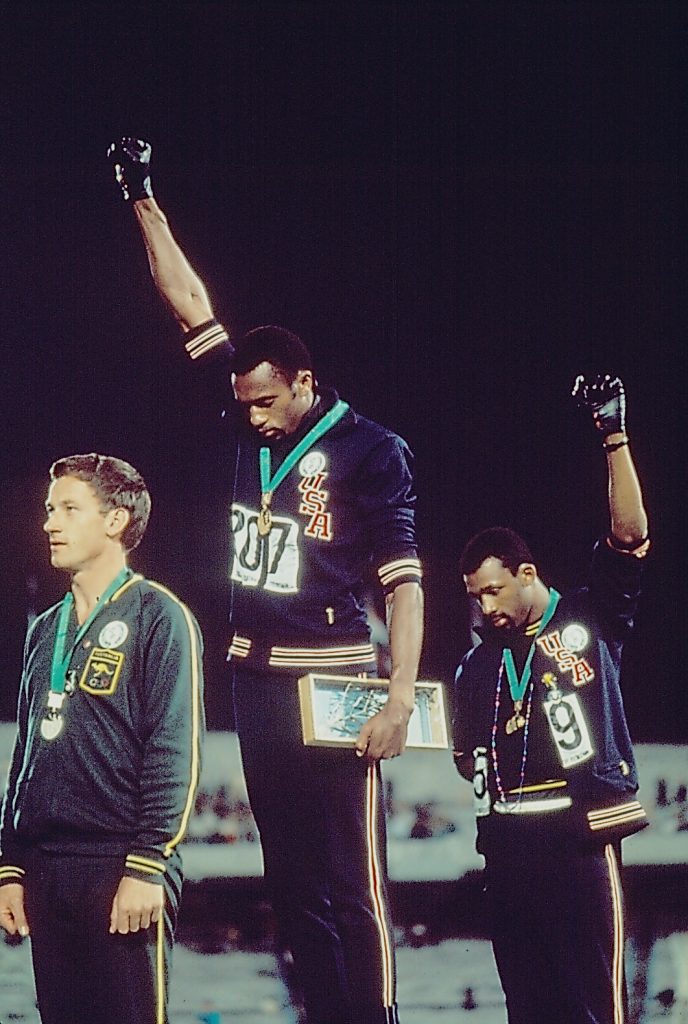
Fast forward nearly 50 years and into another era of American turmoil, an era of #BlackGirlMagic and #BlackLivesMatter and of Carmelo Anthony and Colin Kaepernick. Among all of this, guess who just joined 2016 Olympians and Paralympians for an event at the White House hosted by President Barack Obama and First Lady Michelle Obama as official ambassadors for the USOC? Yes, Tommie Smith and John Carlos.
“Their powerful silent protest in the 1968 Games was controversial,” the President said that day. “But it woke folks up and created greater opportunity for those that followed.”
Many of today’s athletes have benefited from those opportunities and are now#PlayingForward, using their global, national and local platforms to call out injustice and insist upon further dialogue and results on a range of issues.
Who can forget the powerful remarks made less than three months ago, during the ESPYs, by superstar NBA players Carmelo Anthony, Chris Paul, Dwyane Wade and LeBron James? Or WNBA players wearing Black Lives Matter warm-ups, being fined and then seeing those fines rescinded? Or the NBA pulling its All-Star Game from Charlotte over a discriminatory law? Or, most famously, San Francisco 49ers quarterback Colin Kaepernick kneelingduring the National Anthem, and by doing so, greatly accelerating the frequency and volume of professional and amateur athletes alike taking public stands on urgent matters, outside the lines.
Nelson Mandela said, “Sport can create hope where once there was only despair.” That blanket covers everyone from soccer legend Didier Drogba, who — amazingly — halted a civil war in his native Ivory Coast, to humanitarians who send soccer balls to Syria to try to provide the smallest measure of optimism and momentary joy where there is otherwise reason only for horror, to our work at the LA84 Foundation to fund programs like the Gang Reduction & Youth Development (GRYD) Foundation’s Summer Night Lights program, which works to strengthen youth/young adult, family and community resilience to the influence of games by fostering collaborations through sports.
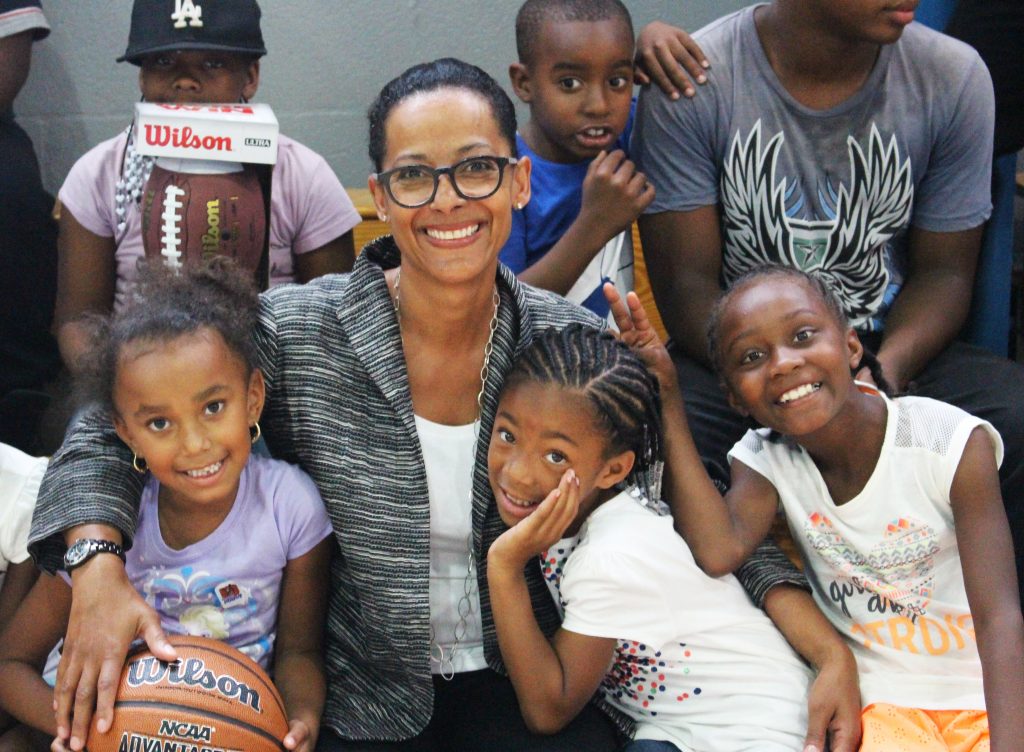
And even closer to home, following the ESPYs this past summer, I was invited by USA Men’s and Women’s Basketball, the NBA Players Association and Brotherhood Crusade to facilitate a community dialogue, spearheaded by Carmelo Anthony, about the rash of police shootings of unarmed black men and how we might move forward. Police officers were in the room, together with youth from the community as well as community leaders and activists. One young girl, about age 15 or so, looked like she had something to say, but wasn’t speaking up. I asked her if she wanted to share her feelings. “I’m numb,” she said. Why? Because of the violence that permeates her community; she shared that a friend of her cousin had been killed recently, right in her backyard.
How can you have a 15-year-old girl with her future ahead of her be numb to death and violence in her community? She was encouraged by the conversation and shared that if she remains numb and does nothing to help, she is part of the problem. Sports can’t solve every problem, but sports can and do provide stimuli and turn success into a way for influencers to effect societal change, one 15-year-old girl at a time. Sport allows athletes to lose themselves in the moment, and to consciously eschew personal glory for the collective good of the team.
Sport also brings fame to many participants, and with that, a platform. Whether by simple gestures, silent protests, full-throated speeches, or convenings held from Los Angeles neighborhoods to the Vatican, sports spark a conversation, and conversation sparks change.
So as we begin the conference today, let’s all heed Pope Francis’ call to “challenge yourself in the game of life as you do in the game of sport.” Make a difference where you are and where you can.
Renata Simril is President & CEO of the LA84 Foundation. On October 27, the organization presents their fifth annual Summit, titled, “PLAYING FORWARD: The Present and Future of Youth Sports in Los Angles.” For more information, visit la84summit.org.
